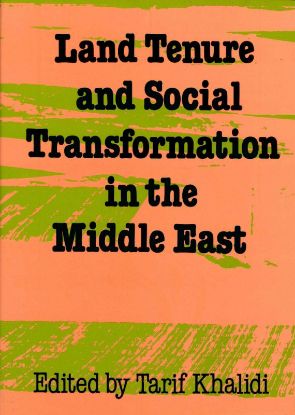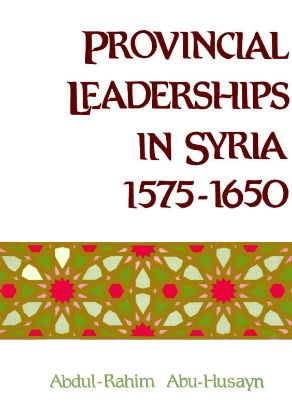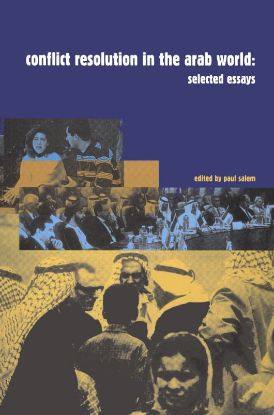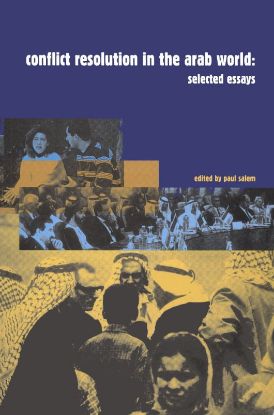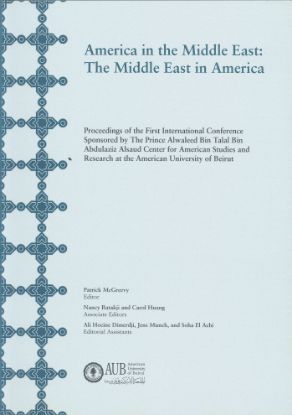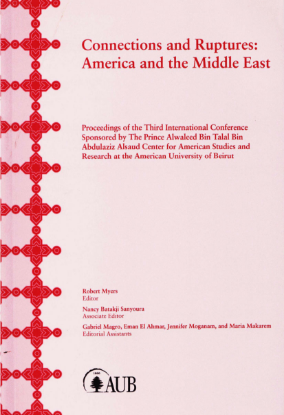Filter by price
Products tagged with 'humanities'
Land Tenure and Social Transformation in the Middle East
This volume provides the first comprehensive survey of land tenure in the Middle East over several millennia up to modern times. Its thirty-two papers bring to this theme an interdisciplinary approach and enable the reader to follow the various threads – historical, social, economic, political, legal – related to the evaluation and development of land tenure systems in the Middle East. Land tenure is a vital element in social transformation; it is quite literally the backdrop to history. Where the Middle East is concerned this theme has not received the concentrated and collective treatment it richly deserves. This volume is of great importance to all who are interested in the history, society, economy, and agriculture of the Middle East, and scholars of land tenure in other regions of the world will find in it ample material for comparative interpretation.
$30.00
Provincial Leaderships in Syria 1575–1650
The author examines the rural politics of the provinces of Damascus and Tripoli in Ottoman Syria in the sixteenth and seventeenth centuries. He considers the various kinds of rural leadership as represented by the most powerful dynasties that dominated various regions of the Ottoman Empire, and focuses on six specific Syrian dynasties, from origin to decline. This work draws on archival material from Istanbul and Damascus, together with Ottoman and Syrian chronicles, biographical and travel literature, and other Turkish, Arabic, and Western contemporary sources. The first two centuries of the Ottoman period in Syria have been little known before the publication of this work, which sheds important light on Syria at that time.
$20.00
Conflict Resolution in the Arab World: Selected Essays
This volume presents the study of conflict and conflict management in the Middle East through a variety of case studies. This is a collection of twenty papers prepared for a 1993 conference entitled “Conflict Resolution in the Arab World: Theory and Practice," organized by AUB and held in Larnaca, Cyprus. The essays cover the general subjects of conflict resolution in Islam, the sociological roots of conflict resolution in the Arab world, and conflict resolution and the Arab State. They include several case studies focusing on Sudan, Somalia, Kuwait, Lebanon, and the Palestinians. Two introductory chapters deal, respectively, with western perspectives on conflict resolution and a critique of those perspectives from a non-western viewpoint. Some of the many traditional mechanisms of conflict resolution are discussed, along with how they are being undermined by the profundity and rapidity of social change in the region.
$10.00
Conflict Resolution in the Arab World: Selected Essays - Hard Cover
This volume presents the study of conflict and conflict management in the Middle East through a variety of case studies. This is a collection of twenty papers prepared for a 1993 conference entitled “Conflict Resolution in the Arab World: Theory and Practice," organized by AUB and held in Larnaca, Cyprus. The essays cover the general subjects of conflict resolution in Islam, the sociological roots of conflict resolution in the Arab world, and conflict resolution and the Arab State. They include several case studies focusing on Sudan, Somalia, Kuwait, Lebanon, and the Palestinians. Two introductory chapters deal, respectively, with western perspectives on conflict resolution and a critique of those perspectives from a non-western viewpoint. Some of the many traditional mechanisms of conflict resolution are discussed, along with how they are being undermined by the profundity and rapidity of social change in the region.
$20.00
America in the Middle East: The Middle East in America
This volume expresses a range of perspectives through twenty-eight papers organized into seven thematic sections: American's Orient, Gendered Encounters, the Middle East in America, US Power and US Policies, Messianic Encounters, Encounters in Writing and Landscape, and Faces of American Studies. This book results from the proceedings of the First International Conference Sponsored by the Prince Alwaleed Bin Talal Abdulaziz Alsaud Center for American Studies and Research at the American University of Beirut.
$10.00
Connections and Ruptures: America and the Middle East
These twenty-nine papers, to quote the introduction by then-CASAR Director Robert Myers, “trace the complex interconnections between the collapsing categories of East and West at a pivotal moment in contemporary history." This book is the result of the proceedings of the Third International Conference Sponsored by The Prince Alwaleed Bin Talal Bin Abdulaziz Alsaud Center for American Studies and Research at the American University of Beirut.
$10.00

